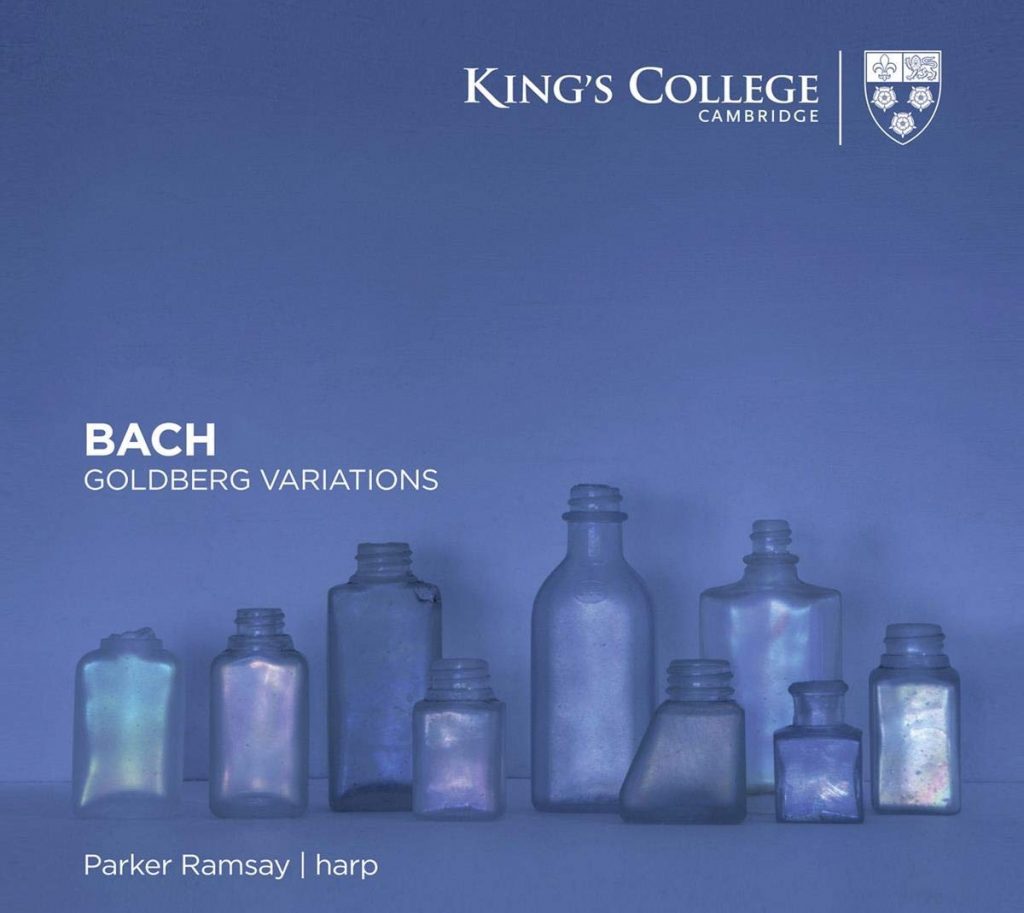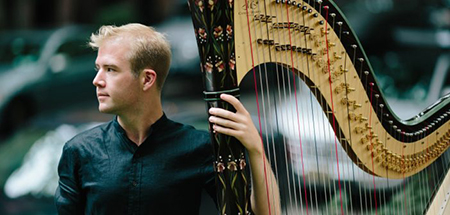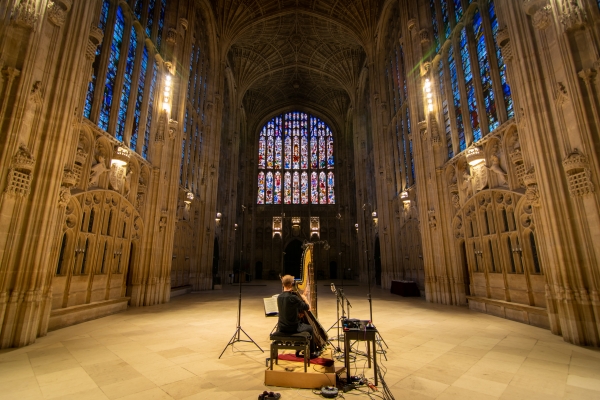by Mike Telin

On Friday, September 18, Ramsay’s debut recording, Bach: Goldberg Variations, will be released on the King’s College Recordings label. The album will be available on CD and to stream and download via all major digital music services. Recorded in King’s College Chapel in Cambridge, England, the album includes liner notes by Pulitzer Prize-winning music critic Tim Page and leading Bach scholar Burkhard Schwalbach.
Ramsay noted that people have been transcribing Bach’s music for many years for a variety of instruments including the Moog synthesizer. “I love Wendy Carlos’ Switched-on Bach,” he said. “It’s just incredible.” In his recent New York Times essay, Ramsay muses on Bach, transcriptions, and instrumentation.
When asked why he chose such an iconic work for his debut recording, Ramsay said that he wanted to present the harp as an instrument that is not just capable of playing new music or idiomatic music, but one that is worthy of the great works in the classical canon. “I also wanted to highlight all the different types of education that I have had.”
At seventeen Ramsay received an Organ Scholarship at King’s College, Cambridge. He holds a bachelor’s in history from the University of Cambridge, a master’s and artist diploma in historical keyboards from Oberlin Conservatory, and a master’s in harp performance from the Juilliard School.
“I’ve played the Goldbergs twice before — very badly on the piano when I was in high school, as many aspiring pianists do, then again on the harpsichord for my master’s degree at Oberlin. In both cases I found myself going to the harp to try and figure some things out. For example, I wanted to hear all the voices at once or hear more color here, and those things could be achieved better on the harp. When I played them on the harpsichord, I found myself trying to imitate what I was doing on the harp rather than the other way around.”

He noted that one of the things a harp cannot do in the Goldbergs is to play fast. “Harpists only use eight fingers. But what you lose in agility, you gain in expression and the ability to bring out colors that may not exist on the harpsichord or the piano.”
Some of the variations were more difficult to transcribe than the others. “I lost a lot of sleep over Variation Eight, because of the issue of the hands running into each other. It’s all arpeggios and that is what the harp does best, but it must sound idiomatic. I looked at Busoni’s transcription for inspiration and I looked at Reger’s two-piano transcription. I looked at a lot of different approaches to see how people got around the fussiness. And I spent a month and a half on Variation One trying to figure out how to make the two voices sound like three.”
Unlike Handel, Bach never composed for the harp, and the instruments that did exist at that time would not have been capable of playing the Goldbergs. “There was the standard continuo harp, and the Welsh triple harp that has three rows of strings — two diatonic and one chromatic — and some German harps that used a stringing system from 16th-century Italy.”

Wrapping up our conversation, I asked about the acoustical challenges of recording the piece in King’s College Chapel. Ramsay said the main issue was the delay. “Everything swims around for a long time. So the recording process was also a learning process — I was being shown what it’s like to play that piece in that room.”
The recording sessions also brought back a few memories. “I remember playing the harp in the Chapel when I was an undergrad and just getting a kick out of the fact that I could get as much power from it as I could from the organ.”
Published on ClevelandClassical.com September 15, 2020.
Click here for a printable copy of this article


